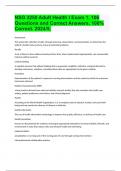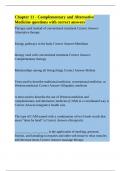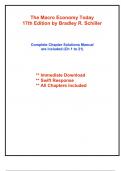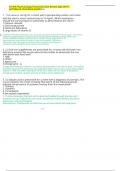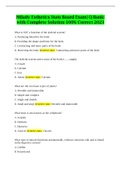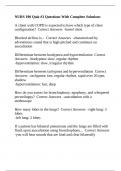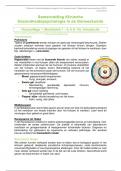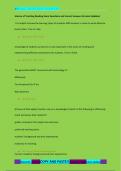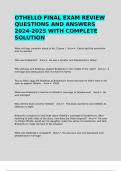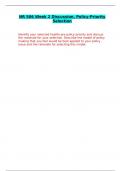Examen
NSG 3250 Adult Health I Exam 1. 106 Questions and Correct Answers. 100% Correct. 2024/5.
- Cours
- NSG 3250
- Établissement
- Galen College Of Nursing
NSG 3250 Adult Health I Exam 1. 106 Questions and Correct Answers. 100% Correct. 2024/5. Assessment The systematic collection of data, through interview, observation, and examination, to determine the patient's health status and any actual or potential problems. Bundle A set of three to five ...
[Montrer plus]
